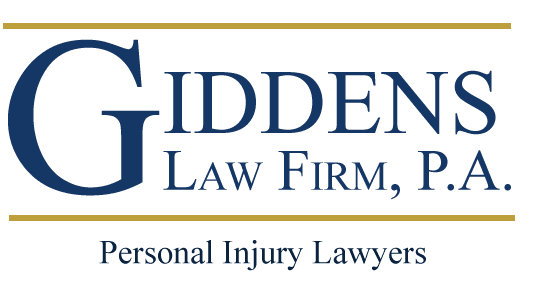The Dangers of Trucks Parked on the Side of the Road
Truck drivers work long, grueling shifts, often driving 12 hours at a time. Within these stretches, they are required by the Federal Motor Carrier Safety Administration to take a 30-minute break after driving for eight consecutive hours. For this reason, amongst others, it’s not uncommon to see large trucks pulled over on the sides of roads. The driver may be taking their necessitated break, or they may be checking their cargo, dealing with a mechanical issue, or performing any number of tasks.
However, it’s also not uncommon for accidents to occur when trucks are parked on the side of the road. Collisions can happen between a parked truck and another vehicle if the truck is not parked safely or in an appropriate area, and the consequences can be severe. Trucks are responsible for a huge number of accidents across the nation every year; in fact, 74% of all fatal passenger vehicle accidents involve a large truck. In the vast majority of these cases, the occupant of the passenger vehicle, not the truck, is the one who loses their life.
If you or a loved one has experienced an accident of this nature, do not hesitate to reach out to Giddens Law Firm, P.A. We will review your case and advise you on how best to proceed, protecting and advocating for you every step of the way. You deserve compensation and justice, and we are here to help you get them. Contact us today for a free initial case review.
Parking Rules for Trucks
While truck drivers are required to take breaks while driving, this does not mean that they may pull over and park anywhere at any time. Rather, there is a specific set of requirements dictating where and when a truck can park safely. Failing to meet these requirements can be incredibly dangerous.
For one, it is illegal in the state of Mississippi (and in many other states) for trucks to park on interstate or highway exit or entrance ramps. This rule is often not followed. One reason this continues to happen may be the shortage of truck parking spots available.
Additionally, there are specific zoning districts for residential areas where truck parking is prohibited entirely. Check out the rules in your specific city or district for more information about these laws where you live.
Requirements for Emergency Parking
Trucks may never stop on the shoulder of a highway, unless in the event of an emergency. If a truck must stop on the side of a freeway or highway during an emergency, they are required to to do the following:
- Turn on hazard warning signal flashers
- The flashers must remain on while the truck driver sets a warning device on the traffic side of the road
- The warning device must be placed as soon as possible, and no more than 10 minutes after stopping. It should be placed:
- On the traffic side four paces from the truck in the direction of oncoming traffic;
- At 40 paces from the big rig in the center of the shoulder in the direction of oncoming traffic; and
- At 40 paces in the direction away from oncoming traffic.
- If the truck is stopped on a shoulder that is within 500 feet of a hill, curve, or other obstruction, the driver must place a warning device in the direction of the obstruction, between 100 and 500 feet from the stopped truck.
Additional provisions are put in place detailing what to do if the truck is leaking gasoline, if it’s dark, and more.
Determining Fault in an Accident with a Truck on the Side of the Road
It may seem like an obvious answer that when a moving vehicle collides with a parked vehicle, the driver of the moving vehicle is at fault. How could a parked car possibly be responsible for causing an accident? The truth is, it absolutely can, and it’s even more complex when the parked vehicle is a commercial truck or a truck of any kind.
As discussed above, trucks and truck drivers have highly specific parking requirements. If one of these requirements is violated or is not met, and a passenger vehicle collides with the parked truck, it’s very possible for the parked truck to be found liable. Imagine a truck pulls over on the off ramp of a highway, out of view of the cars that are exiting the freeway behind them.
In most cases, trucks are large enough that they will protrude into the lane of the exit ramp, and a car exiting the freeway may easily collide with the truck. This is even more possible at night or in low visibility conditions. A truck driver could also be at fault if they did not place the correct warning devices in a timely fashion or in the correct position when making an emergency stop on the side of the highway.
In short, any time a truck violates a parking rule and a collision occurs, the truck driver may be found at fault.
Mississippi also uses the rule of “pure comparative negligence”, which essentially means that multiple parties can share fault for the same incident. In fact, even if you are 99% at fault for the accident, you could still recover losses. Imagine one of the instances above, where a truck is parked illegally and an accident occurs. If the driver in the moving vehicle was speeding or otherwise driving recklessly, they may be partially at fault for the accident as well.
Common Injuries from Parked Truck Accidents
Some people may think that if one of the vehicles involved in a crash is stopped, the likelihood of injury is lower. You don’t have two vehicles speeding towards each other; that must be a good thing, right? The truth is, accidents with a stationary object, such as a truck on the side of the road, can still cause a great deal of damage to those involved.
If this kind of collision takes place on the freeway, as it often does, the moving car may be traveling at a speed of 75 miles per hour or greater. Colliding with a stopped object at this speed can be very dangerous. What’s more, colliding with a commercial truck is essentially the same as colliding with a wall. These trucks can be extremely large and weigh tens of thousands of pounds; when a passenger vehicle hits one of them, the passenger vehicle will without a doubt take the brunt of the impact.
One of the most common injuries that can occur from this kind of impact is a traumatic brain injury. These are caused by a sudden blow to the head, which causes the brain to move within the skull and become damaged. TBIs can range from mild to severe in terms of their intensity and how they impact the sufferer’s brain function.
Something like a concussion would likely be on the mild end of the scale. But in more severe cases, TBI sufferers can lose their vision, their speech, and much more. In the worst cases, death is a possibility. Doctors often use the Glasgow Coma Scale to determine the severity of a brain injury. The scale is divided into three sections: Eye Opening Response, Verbal Response, and Motor Response. Doctors test responses in each of these categories to determine the extent of the patient’s injury.
Other common injuries that occur during a truck accident include:
- Lacerations
- Back and neck injuries
- Spinal injuries
- Broken bones
- Burns
- Injuries requiring amputation
If you have been in an accident and have experienced any of the above, or injuries of any kind, you deserve compensation. Medical bills add up quickly, and you should not be required to bear that burden alone. Contact our experienced truck accident lawyer today to learn how we can help protect your interests.
Compensation and Insurance in a Truck Accident
Compensation will certainly vary from case to case, based on the specifics on the accident, the extent of your injuries, and more. Typically, the first step towards compensation is via insurance.
Particularly if the truck involved in the accident is part of a large trucking corporation, the company may use their extensive legal resources to try to avoid taking fault and giving you any compensation. Working with a lawyer can be crucial in ensuring you receive fair payment.
If your accident is severe enough that your medical bills and additional costs cannot be covered with insurance alone, you do have the option of filing a personal injury suit. Damages from a personal injury suit of this nature can include the following:
- Medical bills and hospital costs
- Lost wages
- Compensation for lowered earning capacity
- Rehabilitation
- Pain and suffering
Work with an Experienced Truck Accident Lawyer
No one wants to experience a motor vehicle accident, and if your accident involves going up against powerful trucking companies, it can be all the more overwhelming. But you are not alone. Having a Mississippi truck accident attorney on your side will help ensure you receive the maximum amount of compensation. Our truck accident lawyers will work tirelessly for you, and we do not get paid unless you win your case of truck on the side of the road accident.
Don’t hesitate to reach out to Giddens Law Firm to discuss the specifics of your truck accident case. Contact us today fora a free initial consultation and learn how we can help protect your interests.
Related Practice Areas



